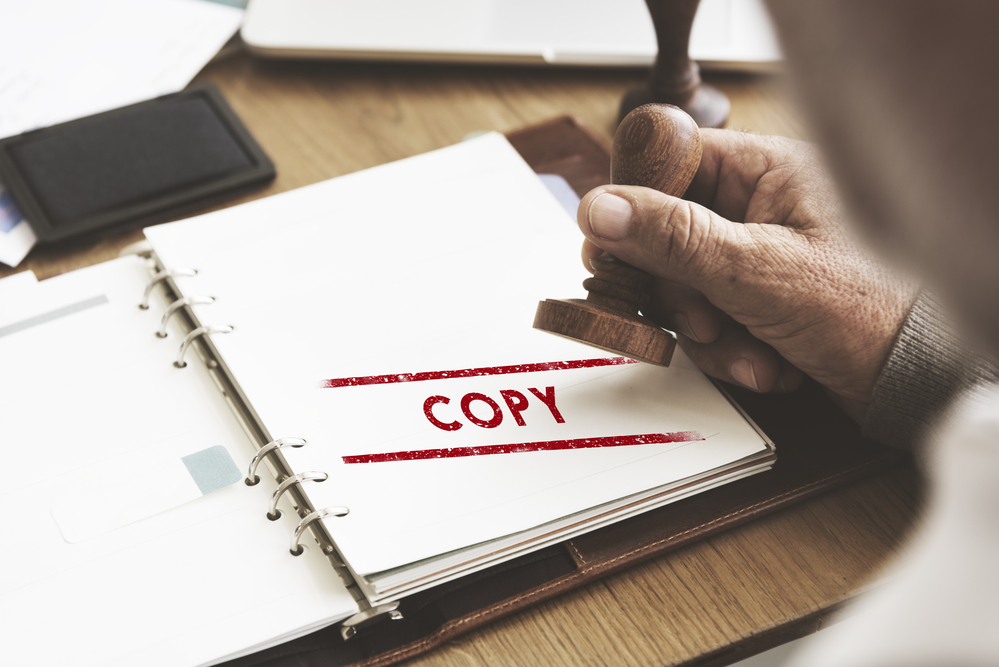
{Read in 7 Minutes} As a Trust and Estates attorney, I frequently represent Executors seeking to probate a Will in the Surrogate’s Court. Most of the time, the Executors will come into my office with the original Will. However, now and then, the Executor cannot find the original and comes into my office with a photocopy. Will the Court probate a photocopy of a Will if the Executor cannot locate the original?
At the outset, it’s imperative to be sure that the original is truly lost. As described below, probating a photocopy is an uphill battle, and there is no guarantee that the Court would be willing to do so. It is not a substitute for a thorough search of the apartments or safe deposit box of the deceased or calling the attorney who drafted the Will (if any) to see if they have it. While cleaning out the apartment of someone who is disorganized, digging through hundreds or thousands of sheets of paper to find an original Will may seem daunting, but this is always easier than going through the lost Will procedure.
Let’s say the Executor has diligently searched but still cannot find that original Will. What do they do?
They file a petition for probate, but instead of asking the Court to probate the Will, the Executor asks the Court to probate a photocopy of the Will. In New York State, certain presumptions arise when someone dies and the nominated Executor cannot find the original Will. Our statutes create a rebuttable presumption that if the deceased was the last person known to have the original, and it cannot be found, the deceased revoked the document by tearing it up, which is one of many ways that one can revoke a Will under New York State law. Give me a hyperlink there if we have an article on how to revoke a Will. If we don’t, via comment I will give you a link to the statute on replication of Wills.
Overcoming this hurdle can be an exceedingly formidable nut to crack. The nominated Executor must convince the Court that the deceased did not destroy their original, essentially trying to prove that something did not occur (proving a negative) without the deceased being alive to testify. It is a tremendously daunting hurdle to overcome.
What are some examples of things that might overcome this presumption?
1. A statement of the deceased.
Ideally, the deceased will keep some records concerning where their original Will is. It may be in their possession, but at some point, perhaps while they are in extremis, they will give the original Will to the nominated Executor or another friend or family member. If that person loses the Will, it is easier to probate a photocopy. However, you will need that paper trail: that e-mail or text message that shows the transfer of custody of the original document away from the deceased to somebody else.
Also, perhaps the deceased has a Will from a long time ago for which they cannot find the original. If they were to send emails (or even better, sign an affidavit) saying that they lost the original but did not intend to revoke it, and it still reflects their wishes, that would meet the presumption.
2. Statement from somebody who lost or destroyed their Will.
This situation would be where one person was doing an overzealous cleanout of another one’s papers. Perhaps I am not organized, and my adult child decides to come into my apartment and reorganize all my papers. In this process, they discarded the original Will. I then asked my child about this, and they told me they accidentally threw it out with other papers. If I die, that child can testify that they, not I, lost that original Will. That would overcome the presumption.
3. Destruction by other causes.
Perhaps the deceased died in a fire in their home. The fire destroyed all of their papers, including the original Will, that was in their possession. The Court would likely probate a photocopy under these circumstances. Or perhaps the deceased had all of their important papers and filing cabinets in their basement, which were destroyed in a major flood that affected the deceased. Proof that some other cause resulted in the loss of the original Will might be sufficient to have the Court probate a photocopy.
Note that if you can’t find the original, you should be able to at least produce a photocopy. This can be paper, or it might be a scanned PDF document. However, what you want to avoid is a draft (the printout of the unsigned Will), or the confirmed copy. (You don’t see this so much anymore, but lawyers used to create a photocopy of the Will with the deceased and the witness signatures printed to make it easier to photocopy.)
If you take nothing else away from this article, consider the importance of this original Will. You can save your Estate thousands of dollars in litigation costs and the uncertainty of whether the Court will probate the photocopy simply by locating the original. Do you have it or did you give it to somebody else? It is worth a few minutes of your time to search your records, figure out where that original is, and let your Executor know where they can lay their hands on it. Even if you don’t want to discuss the terms or give them a photocopy of it, a simple statement like — Look, if anything ever happens to me, all of my important papers are in this drawer in my desk. — could save a significant amount of time and cost.
For more information on this topic, please contact me.
